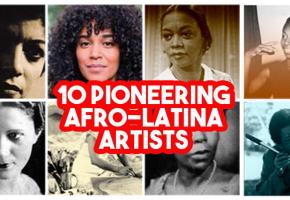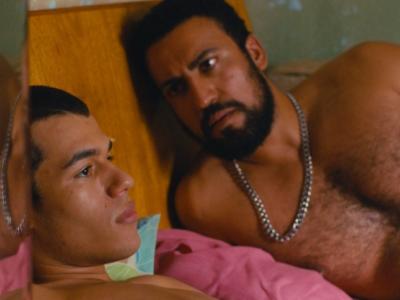Twin brothers – both played by Vigo Mortensson - who have spent many years without contact meet when Pedro, the black sheep and dying from cancer, turns up at his successful brother’s door in Buenos Aires. Agustin, a pediatrician is in an unhappy marriage and, ironically, also unhappy about his wife’s desire to adopt a child. After Pedro dies Agustin uses his body to fake his own death, and tries to take Pedro’s place in the Tigre swamps, where they both grew up.
Unlikely as the plot may seem, the film’s brooding atmosphere stayed with me long after I saw it. Perhaps because it suggests that the glossy norm of a middle-class professional career, which advertising constantly suggests to us, hides a corrosive anxiety of personal identity. Orientation is difficult in a world where threats are only expressed as reflections of a Dangerous Other, transmitted in the media. In contrast, the boundaries of life - loyalties and debts - in the Tigre are sharply defined, and people’s hidden motives are dogs that bite. As Pedro returns he is quickly out of his depth and the feeling is that his existential crisis has sapped his will, not only to have a family, but to survive. Ana Piterbarg has previously been known for light TV series, and this is her first feature. How do you feel about making your first feature film, after TV comedies? I was working on the screenplay for some years, waiting to find the finance to do it, and I worked as an assistant to directors. It was an important step to make, and I am happy. Why did you choose a film noir like this for your debut? I always liked film noir, or thrillers because themes come up which help you understand other aspects of human beings. Such as? Things that lead people to make the kind of decisions that people make in this film. The genre allows you to explore further than a realist film would do. Are the characters psychopathic? Yes, maybe. I think it is better if the audience makes their own opinions. I prefer not to impose my judgements. But sure, they have certain characteristics beyond the normal. Are you attracted to this type of character? Yes, I think that there is something interesting in this type of person, that offers the chance to have a different view of the story. With this type of character, you can show another side of the human condition - the important issues.These characters allow me to show things that we all have in different degrees. The ‘normal’ person has them too, but in a more controlled way. They are people in crisis, or they have a certain internal conflict, which could explode. We all have it but we control it. In this case he can’t, he explodes. Talking of ‘crisis’. There are 2 worlds here. The Tigre is full of marginal people, in contrast to the very successful world of the Doctor. But he is not immune and has to enter this other world. Were you portraying the current economic crisis in the film ? Yes, but I chose this example of the successful doctor, because I wanted to say that “all that glitters is not gold”. He has a good wife, a house, a good job, but he is unhappy and he doesn’t know why. Something has to change, but at the beginning and maybe almost at the end, he doesn’t know how. But following the meeting with his brother, he makes a step, maybe unconsciously, on the path he needs to follow. I was interested by the female characters, both Claudia and Rosa live in a male dominated world. They express their feelings, but they don’t count, they are passive. The men make the decisions. Does that reflect something in Argentina? It may be a reflection of the relation between men and women. The movie also talks about the reponsibility of men in the world. Their role in society. Something is in crisis for them. At the same time this changes things for women. The macho man, the strong and competitive man, who has been there for 1000 years is breaking down now. It is difficult for men to find their role now, and women also are responsible for this.
We always expect men to be strong, this is Claudia: she needs this man to be strong in order for her to be happy. And at the beginning she doesn’t want to see what is really happening, but the challenge of the film is that you don’t know if Agustin is very bad with her, because he doesn’t keep to this stereotype. So maybe you think he is a bad man, what is he doing ? But he is only looking out for his own needs. But I think it is maybe a contract of society to create these roles for everyone. To change that is very difficult, for an individual, especially if you have to disappoint someone you love. Claudia is about this, and then Rosa is someone who can show some light for Agustin. Who shows, through her way of life, a different path. So it is a chance of liberation for Agustin? A new life for himself, not just in relation to Rosa. Some people have told me that this is a very masculine film, which is strange for a woman to make. That was one of my questions - But I think that you also have the female perspective, and in this crisis women have the same problem as men, about our roles of strong mothers, housewives, and professionals, and that supports this convention. I’m reminded of Amores Perros, in this contrast between the conventional bourgeois world, invaded by the world of the street. Were you influenced by that ? Maybe. I don’t live here, but I think there is a really big contrast in our societies, but I wanted to deal with the contradictions, and maybe this is one.



















